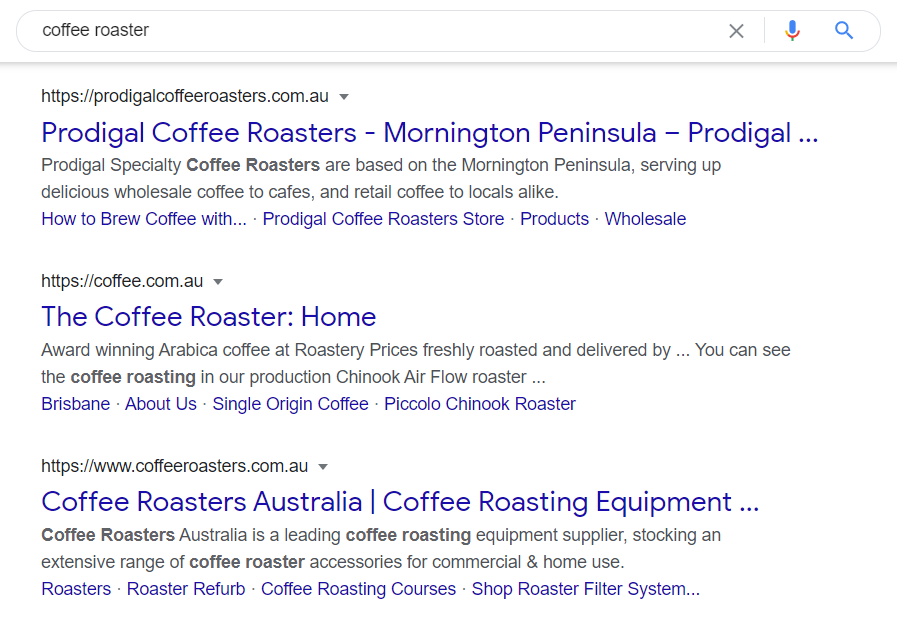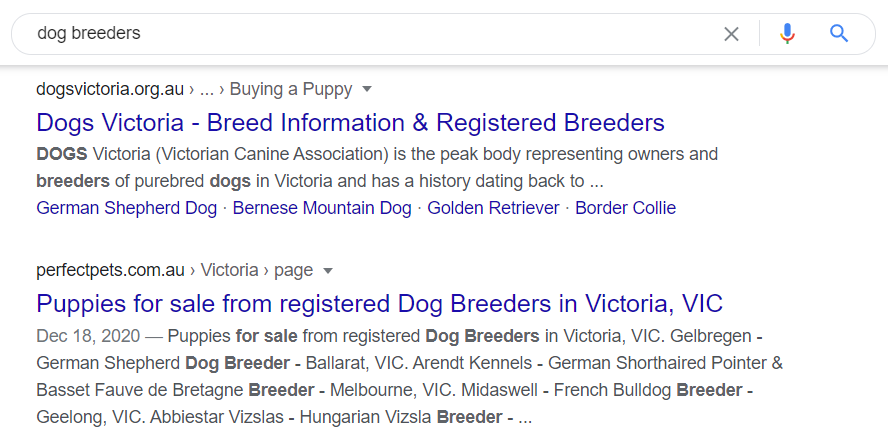If you’ve been working on SEO for your business’ website, you’re probably familiar with keywords. There’s a lot of general language and advice out there, and most of the time it’s pretty good.
We always encourage clients to become educated about their digital marketing. But it’s important to approach this education correctly.
That’s why we’ve created our series on SEO basics. It doesn’t aim to be an in depth course on how to do SEO for your website. It aims to be a jumping off point to help you understand general online marketing strategies and get better results from your digital marketing activities.
What Are Keywords in Relation to SEO?
A “keyword” can relate to a variety of things when we’re talking about SEO.
Generally speaking, we’re talking about what people are searching for when they search on search engines. Because of that, the term “keyword” is a little bit dated. According to Rand Fishkin, more than half of all searches are three words or more. Because of this we prefer the term “search term,” but most people still say “keyword.”
Searches are becoming more sophisticated. When people first started talking about keywords people were doing shorter searches. The internet was a lot less sophisticated and search engines didn’t understand more nuanced language. Now search engines understand questions, sentence modifiers, more.
But hey, we still call these things “keywords.”
Going further than that, talking about keywords also relates to what’s on a website.
It’s common practice to try to optimise a page for a given keyword (search term). For example, we’ve optimised the copy on our Content Marketing page for the general keyword “content marketing.”
Obviously we’re also trying to rank for terms like “digital marketing agency Mornington Peninsula” and general digital marketing searches. However we have a more general strategy for that rather than focusing on a single page.
This is where things get a little more complicated than they used to be, which is why we’re trying to educate.
What Keywords Should I Be Ranking For?
Here we go. We got half way through the article before using our cliched answer.
What should you be ranking for? Well… it depends.
When it comes to what you should be ranking for you need to consider your niche and the search intent for various keywords related to your niche. This is where you may be optimising your site in the wrong way.
Take, for example, a search for “coffee roaster.” The results are a mix between companies that roast coffee and coffee roasting equipment. If you’re a company that roasts coffee or sells equipment, it can be hard to decide whether this is an important keyword.

This is also prevalent in Google Ads campaigns. If you don’t understand the search intent for specific keywords, you may be paying for clicks from the wrong people.
Another example is for very hard search terms or terms that are too broad.
For example, a person who breeds Staffordshire Terriers in Mornington may want to rank well for “dog breeders” until they actually look at the search results. Results for “dog breeders” brings up general index pages for breeders and buying a dog; these would be hard to outrank and are too general. However, searches around “Staffordshire Terrier breeder” and “staffie breeder” are more specific and are easier to rank for.

So it’s not as simple as saying “I want to rank for KEYWORD.” Consider how people are actually searching and what these keywords actually mean. Then plan out these keywords and how you’ll rank for them.
What About Longtail Keywords, Keyword Density, And Stuff Like That?
Early search engines had a lot of emphasis on keywords and literal searches. Because of this people just stuffed direct keywords into their site and hoped for the best.
These days search engines understand a lot more nuance and semantic relationships and similarities between words. For example, Google understands that “digital marketing” and “online marketing” are the same thing, so there’s no need to make two pages optimising for those two different words.
With that in mind, while it’s important to optimise specific pages for specific keywords while not overusing or underusing your target word, search engines can understand an entire site and how it works together.
For example, while we have a page about social media marketing services, we don’t need a specific page on Facebook, Instagram, Twitter, and LinkedIn. Search engines understand that these networks are part of social media.
And this is where longtail keywords come into play. Longtail keywords are a lot harder to plan for as they’re, well, long…
These are the long searches that may not come up often, but can still generate traffic when you’re ranking for a few longtails.
A general blogging campaign can be helpful in capturing longtail keywords. You can’t plan for these easily, but organically you may hit gold.
This is just a general discussion on keywords to get you started. Most importantly you should be considering search intent and how you want to compete. It’s the start of a plan before going forward.





